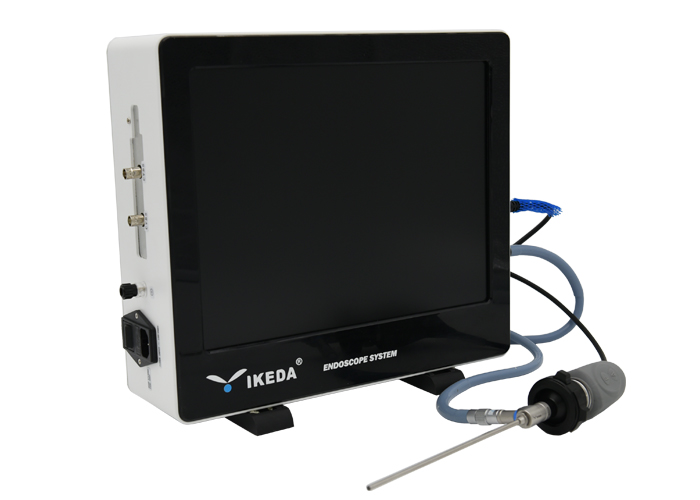Industrial endoscopes are divided into three series of products, the first category: optical rigid endoscope series; the second category: fiber endoscope series; the third category: electronic video endoscope series products. Today we come to understand the optical rigid endoscope.
The working principle of optical rigid endoscope
Its working principle is to use the principle of optical imaging and video imaging for image transmission. The light beam transmits the light from the cold light source onto the object to be inspected, and the image is transmitted to the CCD through the optical transmission of the objective lens, eyepiece, and optical interface. On the surface, after a series of circuit processing, the image is finally presented on the display screen.
Application of optical rigid endoscope
Mainly used in the quality inspection of small pipeline welding, tubing hose, stainless steel capillary inner surface finish, pharmaceutical fluid pipeline elbow and weld, hydraulic casting, pump body and valve body casting, mechanical parts casting and other unit quality inspections, for pipes and cavities Preliminary quality control of welding and casting defects such as internal welds, surface finish, deep holes, blind holes, staggered holes, sand inclusions, burrs, etc. Different viewing angles of 0°, 30°, 70°, and 90° are provided for different inspection workpieces. It can also be connected to an endoscope camera, monitor, etc. through a conversion interface to form a camera, video and image processing system, so that inspection, recording, storage, and analysis can be realized.
Industrial endoscope GY-9115 is an optical hard tube endoscope launched by Xuzhou AKX Electronic Science and Technology Co.,Ltd. It has a built-in 15-inch high-definition monitor with a resolution of 720 lines. The camera adopts 1/3” SONY CMOS imaging and built-in LED. Cold light source (adjustable brightness), optical fiber transmission, storage, video and other functions. Mainly used in automobile manufacturing, aerospace, precision casting, quality control in the machining process and blind holes, straight holes, and staggered holes Quality inspection; various visual inspection scenes such as quality inspection of pores, material shortage, slag inclusion, etc. of various die-casting cavities.
